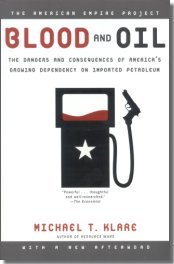


|
|
| Feedback |
|---|
Real Resources Review: A little makes a lot?I sent John Busby's 7th August article to a friend who understands more about nuclear power than I do. His reaction was that 'Mr Busby is not conversant with the concept of pebble bed reactors'. I would like to ask Mr Busby how he views that technology and whether he would care to tackle it in an article for the uninitiated like myself? Kind regards, Paddy Imhof
The problem is that mining of uranium is running down, whatever form of reactor is envisaged. See Die Welt which reports the imminent closure of some of the French reactors due to fuel shortages. The thorium alternative and fast breeders are dependent on vast development programmes which with the rapid and progressive failure of the nuclear industry will never be funded. As far as the pebble bed reactor is concerned it depends on the integrity of the pebbles and as these contain graphite this is likely to lead to the demise of this technology. The seven UK AGR's are likely to close prematurely as the graphite moderator blocks are disintegrating due to the irradiation which causes structural breakdown. Also there is an overheating due to the Wigner Energy effect which leaves a residual heat in the graphite. The gas-cooled fast reactor is also an unlikely candidate for funding for this reason as it relies on graphite moderation. The nuclear lobby in desperation is arguing that uranium can be extracted from the earth's crust and seawater and looks to fast breeders to generate ever more plutonium. All of which is fantasy. We do not have to wait too long for some of the
lights to go out in France, which will hopefully lead to a reality
check! |

| Surviving the Era of Peak Automobile, part I: The problem |  |
 |
| By Jon Rynn | |
| Oct/02/2006 | |
|
It has become clear to many that we have entered a period of Peak
Oil, that is, global production is at or near its all-time high, and
will shortly start coming down.[1] Since the single greatest use
of petroleum is for the automobile,[2] and since the automobile has
been designed, marketed, and produced as an oil-eating machine, it
seems reasonable to conclude that simultaneous with the peak of oil
production shall come the peak of automobile production. That which
oil giveth, oil can taketh away. The primrose path
The automobile is the yet invented by humankind.[3] The Union of Concerned Scientists rates it at number two, behind nuclear weapons, but automobiles continue to kill more than 40,000 people per year in the U.S. alone.[4] More ominously, doomsday scenarios involving the effects of petroleum use may be scarier than the nuclear winter warnings advanced in the 1980s. Petroleum, and therefore by extension the automobile, are directly responsible for three impending catastrophes: global warming, peak oil, and the resultant oil wars. In addition, oil contributes to perhaps the worst future scenario, general global ecological overshoot and collapse. It is the interactions and feedback loops among these problems, with petroleum/automobiles at their core, that should give pause to everyone on the planet. To use the terminology of the authors of The Limits of Growth: The 30-year update ,[5] petroleum creates both a source and a sink problem. When modeling the use of resources in the long-term, we want to know if the resource is being used up, and if so, at what rate. We want to know if the output of the resource during use can be handled by a “sink”, in the same way water harmlessly goes down a sink, or whether the sink will overflow and affect the rest of the system. Petroleum is a nonrenewable resource. There is no way to replenish stocks. Strictly speaking, then, there is always a source problem with oil, since eventually it will all go away. As the anti-Peak Oil writers never tire of telling us, people have been warning about the imminent end of the supply of oil for one hundred years. There is a very good reason this happened: Oil is going to run out, and we don’t really know when. It would therefore seem to be the height of folly to build an entire industrial system based on the substance. There were two main reasons why this is exactly what happened. The invasion of the economy snatchersFirst, consider the automobile. Not exactly the automobile, but more precisely, the automobile companies. In fact, it’s not even true to talk of the automobile companies in the 1920s, since the banks during this period were busy squeezing out many of the original owners as the bankers came to understand that the automobile had become the kind of money source that the railroad had been a generation earlier, as Linda Minor has shown.[6] In fact, the automobile-financial complex did its best to destroy the utility of the railroad industry so that it could leave people with only one “choice”, the automobile. Even greater than the power to force people to choose one among many alternatives is the power to affect which choices one has in the first place. Such was the modus operandi of the “Highway Lobby”, that conglomeration of car, auto, and tire companies that bought up local trolley and bus companies, killing them, and pushing for the use of government to create a “free market” of automobiles.[7] Apparently, there was a complex process whereby the cultural appeal of the United States transformed itself into the universal desire of all societies to have the same miserable system of highways and cars as the U.S.; witness China and even India’s mad rush. There are now over 500 million automobiles in the world.[8] As we see so vividly now, the same banking and financial complex that helped bring the automobile industry in the U.S. into existence is now presiding over its demise. Wall Street egged on Ford, GM and Chrysler in the 1980s and 1990s, applauding the transformation of those companies from companies that made cars to companies that sell SUV and light trucks, vehicles that now account for up to two/thirds of their output and all of their vehicle profits. Maximum short-term profits were made out of minimum oil prices. But now the companies have “legacy” costs, in other words, their thousands of workers who actually created the profits for these companies and Wall Street for decades need pensions, so as far as Wall Street is concerned the car companies can go bust. Instead of redirecting capital into a new, sustainable transportation and energy system, the U.S. financial system is doing to the entire U.S. manufacturing economy what it has done to the car industry; it is milking it for its assets, and then tossing aside its worthless hull. And oil begat more oilThe second major impetus to petroleum addiction in the 20th century was oil’s use for the military. A coal-powered tank will not do. Not being limited to railway networks when transporting troops or equipment means using troop carriers, trucks, and tanks. No military has plans to convert to solar gliders or wind-operated tanks, thank you. The military has translated its oil addiction into its top priority[9] in order to not only safeguard gas for the consumer, but more importantly, petroleum for its tanks, planes, and ships. The military’s top priority should actually be to maintain the health of the manufacturing base on which it depends to build those tanks, planes, and ships; but apparently the military has the same disease as their corporate brethren -- they seem to think they can just buy the machinery from anyone that they want.
As the declining supply of oil becomes clear, as Michael T. Klare shows in Blood and Oil , the potential for great power war will rise greatly. Currently the U.S., Russia, and China are playing a “great game” of power in the Central Asian and Persian Gulf areas, trying to jockey for position. The U.S. would like to use its military dominance to force China in particular to bend to its will, if oil should become short in supply. In the extreme case, the military of the U.S. and other countries will be forced to squander much of their remaining petroleum reserves in a vain but bloody attempt to postpone the state of immobilization that will accompany a final collapse in oil supply. Car, sweet car
The automobile-dominated transportation system would be very expensive to replace, but not as expensive as rebuilding the housing and commercial building stock that was located on the assumption of cheap gas, highways and automobiles.[10] Housing stock within the cities has been starved, so that now the only real housing construction is for upper class residents. The middle class has no choice but to move to the suburbs, as this author can attest, and once in the suburbs, the configuration of shopping, schools, and transportation networks conspires against the would-be pedestrian or cyclist (at this writing, your intrepid reporter is only just surviving without a car). In his book Collapse , Jared Diamond argues that the ability to change a “core value” is one of the most important ways to avoid catastrophe. The automobile has become a core value. It is valued for its own sake; most people cannot even imagine a life without cars. And so it is that an entire civilization has been built on a transitory pool of boiled-down ancient algae. Is that all there is?The choice of the use of the nonrenewable resource of petroleum has been driven by the automobile and the military. The awareness of the precariousness of the supply of this choice of fuels, the concept of peak oil, seems to rise or fall depending on today’s price of gasoline at the pump. The inevitable pre-election drop in oil price has latter-day Panglosses crowing about the fading away of Peak Oil ideas and Prius hybrid cars.[11] Figuring out the true state of global oil supply is not only a scientific problem, but involves the political problem of trying to get information from people who profit from not providing it. That civilization goes blithely driving along without a thorough understanding of how much -- or how little -- petroleum is left underground is mind-boggling. The other half of the problem of oil, the capacity of the earth’s ecosystems to act as a sink, is dominated by the problem of global warming. At this point, however, the understanding of global warming has not yet moved from the frontal lobes of the brain of most people into the parts that really matter, the reptilian part of the brain, the part that understands whether that problem is my problem. In particular, the image of global warming in no way outweighs the emotional attachment to the automobile, which is the major culprit in the production of global warming. The idea of global warming as a warning has the advantage over peak oil that it is presently more readily acknowledged. Also, unlike peak oil, the scientific evidence is not being jealously guarded by particular governments or oil companies. Unfortunately, however, there has probably been much less money spent on the science of global climate systems than on the science of finding petroleum, so that one of the most important scientific questions in modern history has been underfunded. Often those warning of global warming ignore the issue of peak oil. There may be a certain comfort in proposing policy for global warming without acknowledging peak oil, because the sense of urgency can be minimized enough to have a nice rational conversation about the problem. If there really is a peak oil problem, urgency could easily turn to some form of panic. The discussants might start thinking, “Now it’s getting serious”. Advocating general reductions of so-and-so percentage in carbon emissions in general is one thing; looking over the cliff to find that, whatever one wishes to do, the supply of petroleum will inevitably go down by such-and-such percentage, is to feel powerless. And powerful people don’t like to feel powerless. The peak oil problem could intersect in a particularly vicious way with the global warming problem if people become so hysterical that they exacerbate global warming by trying to replace the dwindling oil with gasoline from coal or tar sands, among other substitutes. Jumpin’ Jack FlashThis is where a certain amount of energy literacy becomes critical, in particular, the idea of energy return on energy input (EROEI).[12] That is, if you use about the same amount of energy to produce energy as the energy you eventually wind up with, you really shouldn’t even try, particularly if you’re polluting and global warming in the process. It is not a good sign that people are able to jump on the Jack 2 discovery in the Gulf of Mexico without understanding that obtaining oil from far below the ocean’s surface is not a very economical way to find gasoline for your car.[13] The same will apply to coal and tar sands, but the lure of alleged trillions of barrels of unleaded regular may have an intoxicating affect. Even the current attempts to obtain the increasingly limited supplies of oil is making the global warming problem worse, as more and more petroleum is needed to pump out less and less “black gold”. Living in the promised landHow is the typical suburban person supposed to formulate the global warming problem? Unless you live in a big city with an efficient mass transit system, there is not much you can do. Recently on Bill Maher’s HBO Friday night talk show, the very liberal Massachusetts congressman Barney Frank had an elucidating if depressing interchange with none other than Gandalf, Sir Ian Mckellan. The great wizard pointed out that by living in London, he didn’t need a car anymore. The great liberal complained, incredibly, that people who needed to make 45 minute commutes to work had been “promised” the ability to make that trip in their car using cheap gasoline. He then proposed temporarily lifting the already anemic gasoline tax. The Democrats in the coming election are in the absurd position of blaming the oil companies for high prices and high profits, which of course is all true, but they are thereby whistling past the grave. Oil prices will continue to go up, and the sooner we put in place a different transportation system, the better. Peak oil will make global warming worse if people try to solve the peak oil problem by simply substituting coal or tar sands for petroleum. An acknowledgement of peak oil by trying to wean the society from the automobile would probably help global warming, as a real attempt to deal with global warming could help avoid a traumatic oil shock. Unfortunately, there is a way to solve both problems at once and make our problems even worse: getting fuel from biomass. Peak FoodRearing its ugly head behind and above the global warming and peak oil problems is the scenario that may be summarized in the term global ecological overshoot and collapse. To oversimplify, we may eventually run out of food and water because soils and freshwater stocks are being destroyed. If the transportation and energy system are disrupted, it will be a disaster, but if the food and water run out, then the ecosystems that can provide food and water in the future will collapse, and then the Unmentionable could happen -- humans could go extinct, along with a good percentage of the rest of the species on the planet.[14] One problem with the overshoot problem, besides being so scary, is that it is more difficult to boil down into a sound bite. Global warming is easy to summarize -- The earth is getting too hot. Peak oil sound bite: We’re running out of oil . Overshoot? Because forests are being cut down and grasslands are being overgrazed and crops are being grown by overusing the soil, the soil is eroding; and because fishing technology has become much too efficient most fishing stocks are collapsing; and because underground freshwater aquifers are being depleted, and global warming is melting the snow that used to make freshwater (like the Yellow and Yangtze rivers), we’re going to have much too little usable farmland to feed six billion or eight billion or even maybe two billion people, and they won’t have enough water either, and besides, pollution is contaminating the water and soil that is left.[15] Whew! That’s going way into the commercial break. I didn’t even point out that natural gas and petroleum is used in enormous quantities to grow the crops that are destroying the soils, and the natural gas-derived fertilizers are creating huge “dead zones” in the oceans, like the one in the same Gulf of Mexico that the Jack 2 oil deposit was found, and that such petroleum use is contributing to peak oil and global warming. When the oil runs out, so will much of the food. Biomass delusionSome have calculated that in order to grow enough biomass to be able to fill up all the SUVs and other petroleum-sucking technologies in the U.S., more agricultural land would need to be used than currently exists.[16] One of the main reasons that the Amazon and the Indonesian rainforests are being felled is in order to make palm oil, used for manufactured goods, and increasingly, diesel oil.[17] Ethanol made from corn is very inefficient, and the more efficient sugar-cane ethanol from Brazil is being shut out from the U.S. free market paradise. That sugar cane is more and more being grown at the forests’ expense. Missing the forest for the profitsForests are one of the main carbon sinks, that is, they absorb much of the carbon emissions humanity spews, and they are much better at it than biofuel crops. Forests also keep soil from eroding. So if biofuel production results in forest destruction, biofuels will do more harm than good. The destruction of the forests is actually the second-head of the two-headed monster of the energy crisis, because half of the world’s trees are cut down in order to provide heat and timber for people in developing countries. While the rich destroy the biosphere by getting energy from fossil fuels, the poor do the same by using forests. The poor of the earth need to be able to generate their pathetically small amount of energy without destroying the remaining forests. The technology is there, as for instance simple solar heaters, but it would take either the elites of those countries or the rich of the planet to provide this most basic form of capital, because the poor can’t afford it. This is one of the central proposals in Lester Brown’s book, Plan B . Global warming will make the state of the forests worse and the destruction of forests makes global warming worse. Theoretically, forests will advance to higher latitudes, but this process will take too long to provide the carbon-sinking services needed to avoid the positive feedback cycle of destroyed forests leading to even worse global warming because, not only will the forests not be there to soak up the carbon, they will start to release carbon as they decompose and are burned by fire, just as fossil fuels are releasing built-up natural carbon. Round and round it goesThe worst nightmare situation would be a return to what is prosaically called the Permian boundary.[18] Now the focus of a fair amount of research, it appears that 250 million years ago, the earth underwent a global warming that was so bad that over 90% of the species where wiped out. This disaster probably created the ecological space for the dinosaurs to emerge and dominate, until they were wiped out by a meteor 65 million years ago, leading to the ecological space for mammals and then humans to emerge, leading to… well, the species that fails to learn the lessons of history is doomed to repeat them. We are beset by positive feedback loops. Peak oil could lead to the use of worse greenhouse gas generators. Global warming in conjunction with forest destruction is leading to the breakdown of agricultural systems and water sources, which will lead to wars over food and freshwater. Declining supplies of oil will lead to less food and more wars for oil. Wars will use up oil, ensconce people in power who have no desire or ability to peacefully or sustainably solve these problems (such as the current U.S. administration). And mostly because of the automobile. We return to regularly scheduled programmingBut what was that they’re talking about on the TV news? Terrorism? What? Abortion? Gay marriage? Excuse me? Those are threats to civilization? Who knew! Wait, here comes a commercial…I guess I could always feel better by going out and buying a car. [Part 2 will explore an alternative to Peak Automobiles and its consequences. Jon Rynn’s blog at globalmakeover.com contains information about new articles and data concerning these and other problems. You can contact Jon Rynn directly on his jonrynn.blogspot.com .
You can also find old blog entries and longer articles at
economicreconstruction.com. Please feel free to reach him at
This email address is being protected from spam bots, you need
Javascript enabled to view it
.
[1]
Dr. Colin
Campbell, founder of the Association for the Study of Peak Oil &
Gas http://www.peakoil.net/ , is
on the advisory board of Sanders Research. [3] For a good list of reasons, see http://counterpunch.com/mickey09212006.html [4] See http://en.wikipedia.org/wiki/Car_accident%20 [5] Donella Meadows, Jorgen Randers, and Dennis Meadows, Limits to Growth: The 30-year update (Chelsea Green, 2004). [6] “Unwarranted Influence and Misplaced Power ”, July 13, 2006, Linda Minor. [7] Jane Holtz Kay, Asphalt Nation: How the automobile took over America and how we can take it back , 1998. [8] http://www.worldwatch.org/node/1537%20 [9] In Michael T. Klare’s Blood and Oil: The dangers and consqequences of America’s growing dependency on imported petroleum , the interweaving of oil and the military is shown in gory detail. [10] According to the Survey of Current Business, September 2006, Page 23, the current cost of residential assets is $15.8 trillion. Nonresidential structures are $8.8 trillion. [11] For instance, from EnterStageRight.com, we have “Peak Oil” or Lots more oil?"., [12] For instance, see Richard Heinberg’s The Party’s Over: Oil, war and the fate of industrial societies , second edition, 2005. [13]
For example,
see an article at oildrum.com about Jack
2, [14] See Limits to Growth , although they do not discuss extinction or what a collapse would look like. [15] The best books I am aware of at this point are Limits of Growth and Lester Brown, Plan B, version 2 , 2006 [16] For one discussion, see pages 171-175 in The Party’s Over. [17] http://news.mongabay.com/2006/0425-oil_palm.html [18] For example, “Impact from the Deep” by Peter Ward in Scientific American , October 2006. |
 |
| Register Free to receive updates of latest stories |
|---|
| Polls |
|---|

 It has
become clear to many that we have entered a period of Peak Oil, that
is, global production is at or near its all-time high, and will
shortly start coming down. Since the single greatest use of
petroleum is for the automobile, and since the automobile has been
designed, marketed, and produced as an oil-eating machine, it seems
reasonable to conclude that simultaneous with the peak of oil
production shall come the peak of automobile production. That which
oil giveth, oil can taketh away.
It has
become clear to many that we have entered a period of Peak Oil, that
is, global production is at or near its all-time high, and will
shortly start coming down. Since the single greatest use of
petroleum is for the automobile, and since the automobile has been
designed, marketed, and produced as an oil-eating machine, it seems
reasonable to conclude that simultaneous with the peak of oil
production shall come the peak of automobile production. That which
oil giveth, oil can taketh away.



